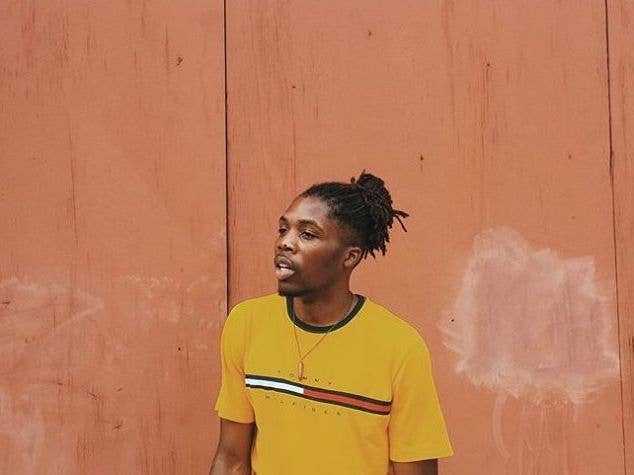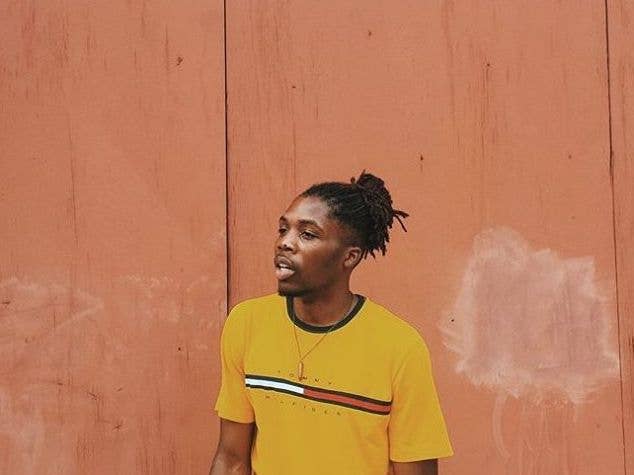
A week and a half ago, I was listening to N.O.R.E. and DJ EFN interview Jeezy on their podcast Drink Champs (which I highly recommend for fans of hip-hop history, amusing banter, and/or ass-eating). They spoke about the release of Jeezy's Trap Or Die 3, the first edition of the trilogy blessed with the semantic moniker "studio album"—what does that really mean today, anyway?
Trap Or Die 3 marked Jeezy's third number one album on the Billboard 200. Neither of its first two singles, "Let Em Know" and "All There," featuring the late Bankroll Fresh, had received significant radio play by the time of the album's release.
The same week, Meek Mill's Dreamchasers 4—another studio album bearing the name of a beloved and star-making mixtape series—debuted at number on the Billboard 200, similarly with no key singles released in some dramatic rollout. Both albums arrived with relatively little fanfare and while securing impressive first week bows; they're also both likely to prove lucrative in the long term as the increasing adoption of streaming platforms has turned hip-hop back into an appealing proposition for labels.
Jeezy and Meek scored considerable returns largely on brand equity, but their perch atop Billboard's album chart (sandwiching Kenny Chesney at number two, which some could read as a sort of darkly humorous omen for the urban/rural divide that revealed itself in high relief in post-election voter maps) got me thinking about cycles and trends.
Many "old heads" often get blamed for their crotchety complaints about Lil Yachty, Young Thug, and the legion of quirkily clad mumble rappers rising in the wake of a new generation of ATLiens. For too long, we've probably attributed this sort of grievance to a generation that isn't actively making music consumed by young listeners. One would have to imagine that there are at least some younger members of the audience hearing this music and longing for something closer to the music they or their parents grew up on—or just looking for something plainly different.
It's not that difficult, then, to envision a world two or three years down the road—after Big Sean and J. Cole enter another album cycle, as up-and-comers like Saba, Cozz, Boogie, Mick Jenkins, Dave East, and Cousin Stizz, to name a diverse, unrepresentative few, continue to establish themselves—rappers whose styles hew a bit closer to classicist style have returned to prominence in hip-hop, buoyed by a streaming market that prizes quality over quick hits.
"I just had this conversation with a close friend," says rapper Jhon Myquale (pronounced "mike-well") over email when I ask him if he thinks this swing looms on hip-hop's horizon. "I definitely feel so. Especially with all the political distress people across America are experiencing—people across the world. People need a voice and a way to resist. Music has always been the tool. Fela says music is spiritual. It's true. Then we'll probably return back to the more party oriented records haha. Music happens in cycles, I've witnessed mad trends. History only repeats. When you think about it, hip hop isn't old at all. What'll be more impressive is artists focusing on the musicality. That's what I'm most excited for."
Myquale is a Milwaukee native raised in Queens, raised on the music of Erykah Badu, Kanye, A Tribe Called Quest, and Outkast, schooled by night life experiences.
"Queens had me on my dancehall wave," Myquale says, "underaged, dutty wining somewhere in a crowded bar with a Nigerian girl asking 'weh da bad gals dem?'"
Records like Myquale's sprawling "Melvina," a sprawling freestyle in the spirit of Lil Wayne's Dedication-era beat jacking and song reinvention, showcase the Chicago-based rapper's palette and technical skill.
"I decided to pick my favorite songs and just freestyle over them, on my Dedication tip," says Myquale of the nearly 14 minute long song. "I recorded it in one night, all the way through. The girl I was dating at the time, I had her say my name and do ad-libs. I pretty much handled the rest. Definitely Wayne inspired though. I wanted to close that chapter in my life. I needed to write about it first. Melvina was rough. One reason why I moved to Queens."
Myquale's rapping moves across tracks with a sort of internal momentum, words and syllables intertwining with those before and after, giving verses a hypnotic sense of forward motion. If "Melvina" is a bit much digest for first time listeners, latest release "Big Foot's Blues" tops a MNDSGN beat (previously used on Doja Cat's woozily wonderful "Nunchucks") into a dizzying display of densely coiled rhymes.
None of the releases on Myquale's decidedly messy Soundcloud point to obvious chart domination, but his commitment to concerted, carefully crafted rhymes speaks to the potential for impending sea change—and provides another artist to watch for fans of focused, purposeful rapping.
We're switching things up. 5 On It is now going to come at the end of each month. In its place, a new artist will be highlighted on the first and third Saturdays of each month. You can also enjoy some favorites from the past on our new 5 On It Spotify playlist, which you can check out below.
(Shout out to my main man Nick Guilmette for the hat tip on Myquale's music)

